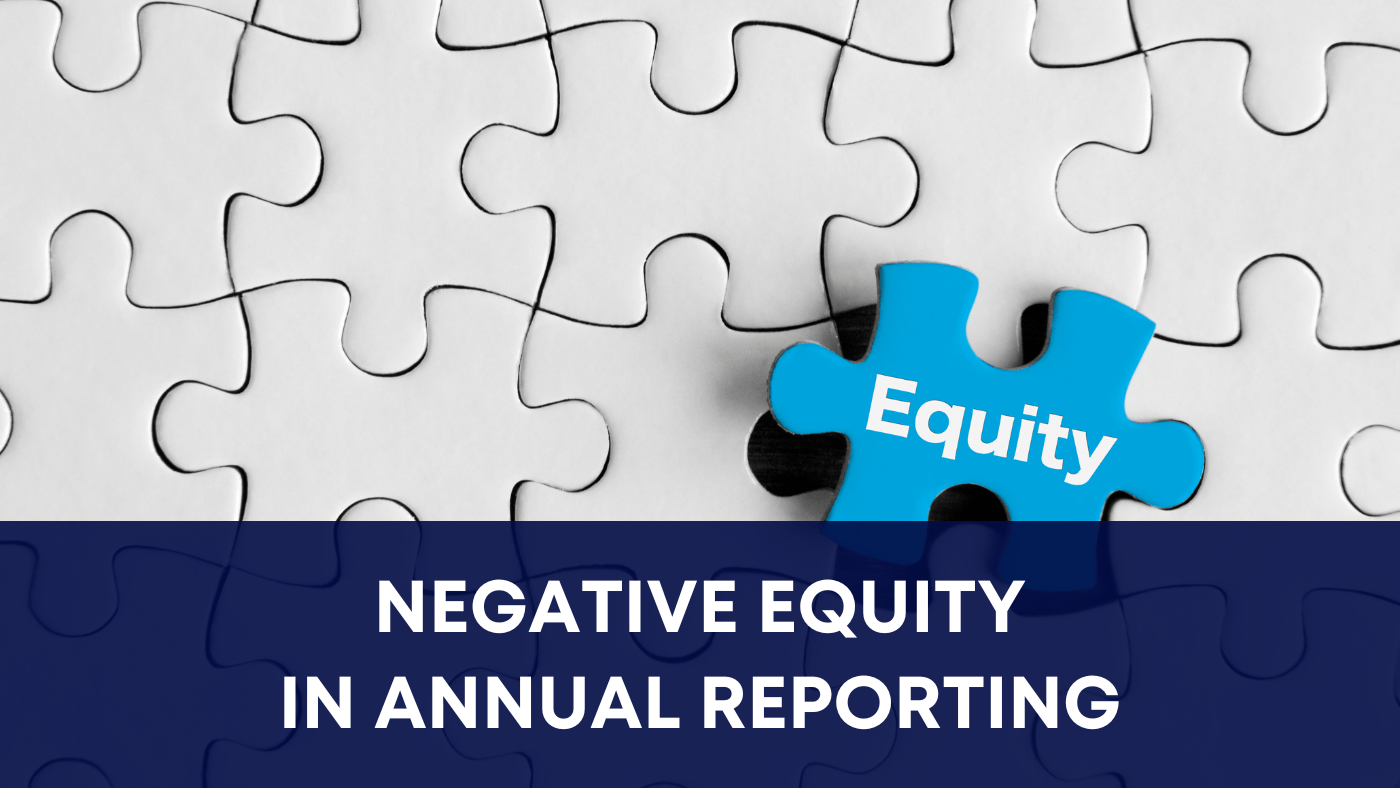Annual reporting: How to deal with negative equity?

Did you get a letter from your accountant saying your company’s equity is lower than the law requires, meaning your company has negative equity? When not dealt with there can be unwanted consequences. Here we will explain in more detail what does it mean and how to solve it.
The calculation of negative equity is based on your company’s share capital.
The Commercial Code has regulated the amount of equity that is mandatory for a company to have. It is necessary to have more assets than liabilities, this constitutes as positive equity. Having positive equity makes your company more trustworthy to potential partners. Since Estonia has a transparent business environment company’s annual reports can be visible to everyone. The amount of equity that is registered in the commercial register is called share capital. The share capital is a part of equity.
The minimum amount of share capital in Estonia used to be 2500€. However, as of February 1, 2023, there is no longer a minimum share capital requirement for establishing a private limited company (OÜ) in Estonia. This means that an OÜ can be founded with a very small share capital, even as little as one cent. However, it is important to note that the amount of share capital affects the company’s credibility and financial stability. Additionally, if the share capital of an OÜ is less than €2,500, the shareholder is liable during bankruptcy proceedings for the temporary trustee’s fees and costs up to the difference between the share capital and €2,500.
- If the share capital is 2500-5000€, the equity must be at least 2500.
- If the share capital exceeds 5000€, the equity must be at least 50% of the share capital.
How does it happen and what to do about it?
Usually, equity is lower than required due to:
1. Unpaid vendor invoices or received loans.
2. Loan granted by the owner – you have loaned your company money to pay for liabilities.
3. Expenses are higher than income, this is often the case with companies that have just
started.
You are required to report how you are going to cover the deficit in your share capital. An explanation, with the appropriate solution, must be attached to the annual report. Some commonly used solutions for low equity are:
1. Non-monetary contribution: If you choose to give a loan to your company – raise the granted loan from liabilities to equity. Check if a non-monetary contribution is allowed in your articles of association.
2. Monetary contribution: When you give your company a loan to directly pay off your liabilities. It is advisable to increase the share capital by 1€ (the rest goes to share premium line) because bigger share capital leads to higher equity requirements.
PS! The money paid into the company by the owner can be taken out tax-free afterwards. To do this you must declare in and out payments to the Estonian tax office
3. Usually the most expensive solution for the company: waiver of the loan. You send an e-mail to your accountant saying that you waive your claim against the company as the sole owner. The loan is converted into a revenue. The catch is that the waived amount can’t be withdrawn tax-free, because it is changed into profit and profit gets taxed when paid out.
How to keep your equity positive?
The best possible solution is prevention. A good time to check if negative equity can occur is in October-November. You can do it yourself by checking if your assets and liabilities are in balance or turn to us to get the report about your current situation. If your equity tends to be near negative, you can try these changes:
- Postpone your big expenses to January (the start of next fiscal year). Also, do an additional sales invoice at the end of December if possible instead of the beginning of January.
- Transfer an expense to the company asset line – an expensive equipment cost (phone, laptop, camera etc.) can be divided between years (you determine the number of years).
Why can’t negative equity always be avoided?
We often get all the data for annual reporting after the financial year has ended and therefore can’t always foresee the negative equity. In addition to this, a company could have big expenses (causing negative equity), which can’t be postponed. If negative equity has occurred, it is not a big problem as long as you provide a feasible solution for it attached to your annual report. When you get a notice about negative equity by the Commercial Registry don’t ignore it, provide them with a solution or else they can delete your company from the registry!
These are the most common solutions, other options are also available and Silva Hunt can help you find the right one for your case.




 Schedule a call
Schedule a call
 Send a message
Send a message